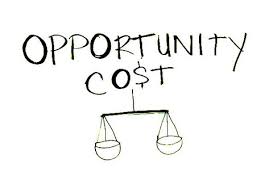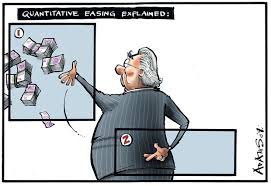The concept of opportunity cost occupies an important place in economic theory. The concept was first developed by an Austrian economist, Wieser. The other notable contributors are Daven Port, Knight, Wicksteed and Robbins.
In microeconomic theory, opportunity cost is the value of the best alternative that must be forgone in order to pursue a certain action. Assuming the best choice is made, it is the “cost” incurred by not enjoying the benefit that would be had by taking the second best choice available. For example, let’s assume you have Rs. 5,00,000 that you could either invest in a company’s stock or invest it to start up your own business. You choose the stock.The opportunity cost in this situation is the earnings that may have resulted from setting up your own business.
If you make a choice, you forgo the other options for now. And what’s been given up can sometimes turn out to have been the wiser choice, which is why opportunity cost should be carefully evaluated by companies. It is important to take opportunity cost into account in every kind of decision making.Because most managers operate on a set budget it is important to take opportunity cost into account to increase utility and to make better choices amongst scarce resources





8 Comments. Leave new
Good work!
Good efforts. 🙂
beautifully codified!
Well writen.. great job..
VEry well wriiten 😀 Good work 😀
good onev 🙂
nicely done!!
great work